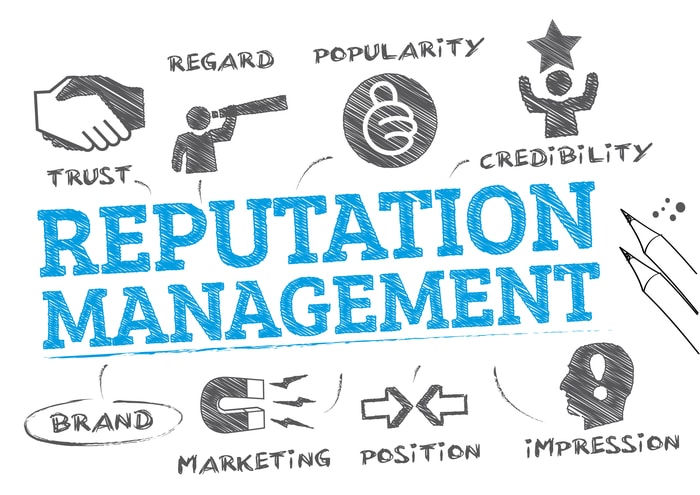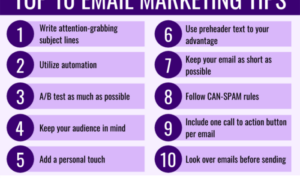Online Reputation Management is the key to success in today’s digital world. From individuals to businesses, the way you are perceived online can make or break your reputation. Let’s dive into the strategies and tools needed to maintain a positive online presence.
In a world where social media and online reviews can make a lasting impact, it’s crucial to stay on top of your online reputation.
Importance of Online Reputation Management

In today’s digital age, online reputation management is crucial for both individuals and businesses to maintain a positive image and credibility in the eyes of their audience. With the widespread use of the internet and social media platforms, a good or bad online reputation can significantly impact an entity’s success in various ways.
Impact of Online Reputation
- Positive online reviews and feedback can attract more customers and clients, leading to increased sales and revenue.
- A negative online reputation, on the other hand, can drive potential customers away, resulting in loss of business opportunities.
- Employers often conduct online searches on job candidates, and a negative online reputation can hinder career advancement and job prospects.
Role of Online Reviews and Social Media
- Online reviews on platforms like Google, Yelp, and Amazon can heavily influence consumer purchasing decisions.
- Social media platforms such as Facebook, Twitter, and Instagram provide a space for users to share their opinions and experiences, shaping the reputation of businesses and individuals.
- Engaging with customers and addressing feedback promptly on social media can help build a positive online reputation and foster trust with the audience.
Strategies for Effective Online Reputation Management
In today’s digital age, managing your online reputation is crucial to the success of your business or personal brand. By proactively taking steps to enhance and maintain a positive online presence, you can build trust with your audience and attract more customers or followers.
Monitoring Online Mentions and Reviews
It is essential to keep a close eye on what others are saying about your brand online. By monitoring mentions on social media, review sites, and other platforms, you can quickly address any negative feedback or complaints. This proactive approach shows that you care about your reputation and are committed to providing excellent customer service.
- Set up Google Alerts or use social media monitoring tools to track mentions of your brand.
- Regularly check review sites like Yelp, Google My Business, and TripAdvisor for customer feedback.
- Respond promptly to both positive and negative reviews to show that you value customer feedback.
Engaging with Customers or Followers
Engagement is key to building a positive online reputation. By actively interacting with your audience, you can foster a sense of community and loyalty around your brand. Responding to comments, messages, and reviews in a timely and personalized manner can help you connect with customers on a deeper level.
- Encourage feedback and reviews from satisfied customers to showcase your brand’s credibility.
- Use social media to engage with followers through polls, Q&A sessions, and live videos.
- Show appreciation for customer support by sharing user-generated content and testimonials.
Tools and Platforms for Online Reputation Management
In today’s digital age, managing your online reputation is crucial for businesses and individuals alike. With the vast amount of information available online, it is essential to utilize the right tools and platforms to monitor and maintain a positive online presence.
Key Tools for Monitoring Online Reputation
- Google Alerts: A free tool that allows you to monitor mentions of your brand or name across the web.
- Brandwatch: An advanced social media monitoring tool that provides real-time insights into your online reputation.
- Reputology: Specifically designed for managing reviews and feedback from customers on various review sites.
Comparison of Online Reputation Management Software
| Software | Features | Benefits |
|---|---|---|
| Brand24 | Social media monitoring, sentiment analysis, influencer identification | Real-time alerts, competitive analysis, customizable reports |
| Reputation.com | Review management, sentiment analysis, local search optimization | Multi-channel monitoring, review response tools, actionable insights |
| Hootsuite | Social media scheduling, monitoring, analytics | Centralized dashboard, team collaboration, content curation |
Features and Benefits of Online Reputation Management Tools
- Real-time Monitoring: Stay up to date with mentions of your brand or name as they happen.
- Sentiment Analysis: Understand the tone of online conversations surrounding your reputation.
- Competitive Analysis: Compare your online reputation with that of your competitors.
- Actionable Insights: Gain valuable insights to inform your online reputation management strategy.
Handling Negative Feedback and Crisis Management

In the world of online reputation management, handling negative feedback and managing crises effectively are crucial aspects to maintain a positive brand image and customer trust.
Best Practices for Responding to Negative Feedback, Online Reputation Management
- Respond promptly and professionally to negative reviews or comments.
- Show empathy and understanding towards the customer’s concerns.
- Acknowledge the issue publicly and offer to address it privately to resolve the issue.
- Avoid engaging in arguments or heated discussions online.
- Take responsibility for any mistakes and offer a sincere apology if necessary.
Step-by-Step Guide for Managing a Reputation Crisis
- Assess the situation carefully and determine the extent of the crisis.
- Develop a crisis communication plan with designated spokespersons and key messages.
- Act quickly and transparently to address the crisis and communicate updates regularly.
- Monitor social media and online platforms for any developments and respond accordingly.
- Evaluate the effectiveness of the crisis management plan and make necessary adjustments for future incidents.
Real-Life Examples of Companies Navigating Reputation Crises
United Airlines faced a reputation crisis after a video of a passenger being forcibly removed from a flight went viral. The company issued a public apology, conducted an internal investigation, and implemented policy changes to prevent similar incidents in the future.
Toyota experienced a reputation crisis due to safety recalls affecting millions of vehicles. The company responded by recalling the defective vehicles, offering free repairs, and launching a comprehensive PR campaign to rebuild trust with customers.












